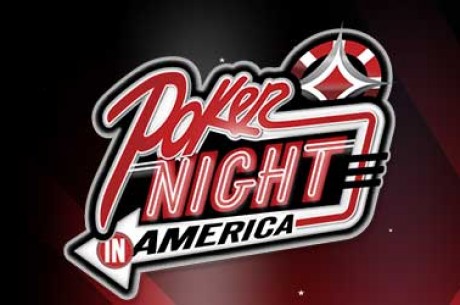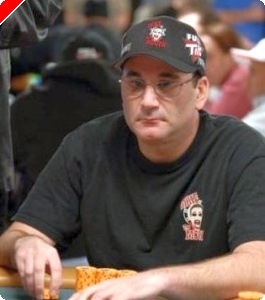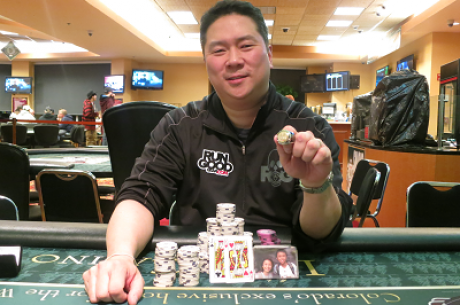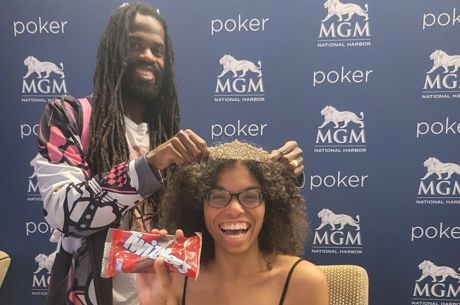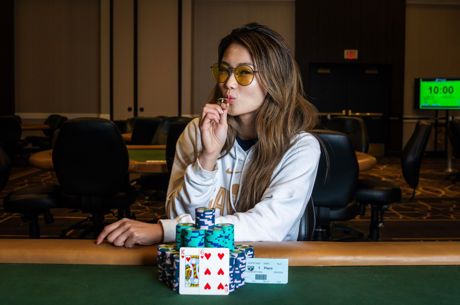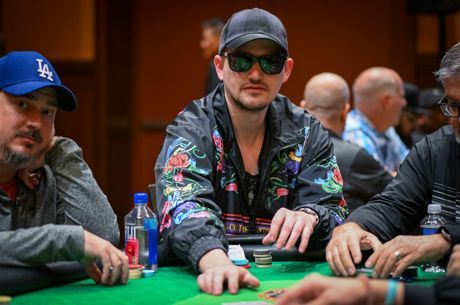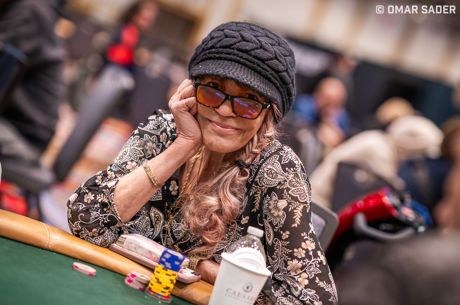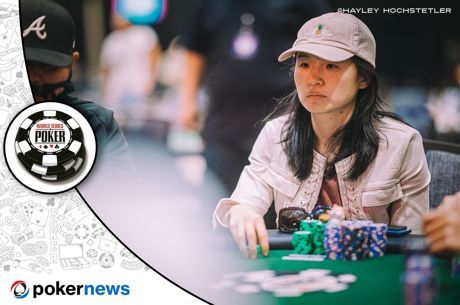Greg Raymer: The Fossilman Excavates His Past and Looks to the Future
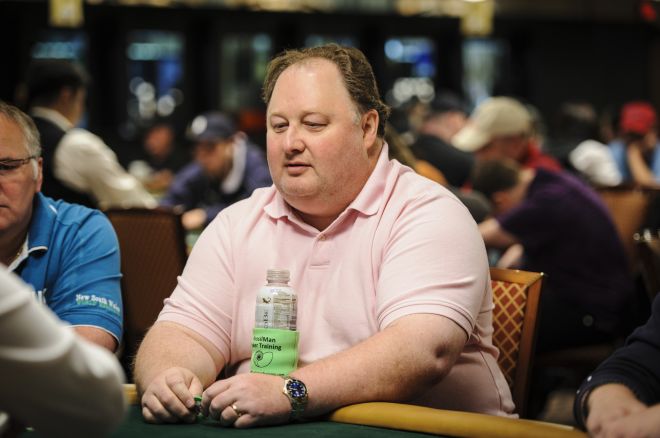
It��s been 10 years since Greg Raymer won the World Series of Poker. As a Main Event champion, he became one of the most visible and active ambassadors the game has ever known. From his trademark Fossilman glasses to his take-no-guff persona (personified by his refusal to shake Mike Matusow��s hand after Matusow trash talked him at 2004 WSOP) to his fan-friendly accessibility, Raymer has not only taken to the spotlight, he has reveled in it.
A lot has happened to him in 10 years since he bested David Williams in a dramatic heads-up duel to win the gold bracelet and $5 million in prize money. For one thing, he was able to quit his job as a patent lawyer for Pfizer and devote himself full-time to the game that he had once considered mainly a lucrative hobby. He then followed up his WSOP championship by finishing 25th out of 5,619 entrants in the Main Event the next year, an almost unprecedented feat. His other poker accomplishments since include a near $800,000 third-place finish in the $40,000 No-Limit Hold'em event at the WSOP in 2009, a World Championship of Online Poker (WCOOP) bracelet worth $168,362 in 2007, a record four first-place finishes on the Heartland Poker Tour in 2012, and lifetime tournament poker earnings of over $7.4 million.
Along the way, Raymer has fought off two robbers who tried to hold him up at gunpoint as he was returning to his room at the Bellagio one night; he has traded golf for poker lessons with PGA pro Rocco Mediate; he has been a teacher at the WSOP Academy, as well as starting his own poker training school, Fossilman Poker Training; and with his wife Cheryl he has raised a daughter who is about to head off to college. On the downside, his long and fruitful relationship with PokerStars came to an end in 2010, and in 2013 he was caught in a prostitution sting operation and charged with soliciting sex (charges that have since been dismissed), an incident that has been privately painful and publicly embarrassing. In a lengthy interview with PokerNews, he talked openly about all the ups and downs of the past 10 years, and what he looks forward to in the future.
You recently solicited investors to fund your poker bankroll just as you had done back before you won the world championship. How��s that worked out?
We put together a pool of about $80,000 and I��ve been playing with it. I��m down a bit, but that��s kind of the nature of tournament poker. I��ve been playing a little bit of cash as well, but that hasn��t turned us into a winner at the moment. Still, one good tournament result and all��s good.
You��re invested in this as well?
Oh yeah. I think that as an investor you want the player to be invested as well. Otherwise you��d get into situations where near the end of the year, if the player is down and his own money isn��t on the line, then he has every incentive to go batshit crazy. If a good chunk of it is your own money, then you��re burning through your money as well, so an investor will be less concerned with a player doing something like that. I don��t think that people are that worried about me anyway, but just in case that��s something to allay those concerns.
You��re 49 now. Have you noticed any effects of age on your poker-playing ability?
My memory stinks, but then it��s always been bad.
You were involved in poker for many years before you won the world championship, and it��s now been 10 years since, so you��ve seen the landscape change over a long period of time both on a personal level and in a larger context. Can you speak to some of the changes you��ve seen?
Well, maybe I��m not a very philosophical person, I mean I certainly see that there have been a lot of changes, but I��m not very nostalgic. I mean, there were good things about the way poker was before but there were bad things. But overall, just the fact that it��s bigger generally is better. I think it��s good that with the Internet information is much more available. It��s much easier now for someone to become a really good poker player �� and that��s great. Now someone doesn��t have to be a bad or mediocre player for decades. But of course on the other side, if you��re a professional player trying to make a living it��s bad because your opponents tend to be better. The average player today is tremendously more skilled than they were before I won the Main Event. If you took a player from a $1,500 no-limit hold'em event at this year��s World Series, who��s the second worst player at the table, and you could send him back in time to before I won the Main, he��d probably be the second best player at the table.
Before winning the Main Event, you weren��t a pro, but that incredible event enabled you to make a dramatic change.
Well, I was actually a part-time pro before that WSOP. I had been filing my taxes as a part-time poker professional since ��98. It certainly wasn��t my primary source of income between ��98 and 2004, but it was a nice bit of extra income.
Have you ever thought what direction things might have taken if you hadn��t won the Main Event in 2004, if you��d had a good showing but hadn��t won?
The funny thing is, I had a job interview the day of the final table with a small biotech firm in Tucson and I pretty much had that job offered to me, all I had to do was a follow-up pro-forma interview with the president of the company and if I didn��t do a George Bush Sr. and puke in the guy��s lap at lunch, I was gonna get that job. If I��d been knocked out early, the plan was to fly to Tucson, and do that follow-up interview before going home. Who knows, winning the WSOP might actually have cost me money, because I was talking to someone from Tucson about five years ago, and I mentioned this story, and they said, "What company?" and when I told him, he said, "Oh, that company��s been doing gangbusters. They��re incredibly successful." I don��t know how many stock options they might have given me, but with biotech companies it��s not uncommon for them to match what you had at your previous company. And I had a lot at Pfizer, even though those options were basically underwater. So I might have made a lot more than five million if I��d taken that job. It might be that that was going to be a good day for me no matter what.
Do you still enjoy the game as much as you used to?
I do. I still love playing, especially when I��m winning.
Do you find it��s changed for you in any way? Is it a disadvantage to be approaching qualifying age for the Seniors when playing in the Main?
Well, I don��t seem to have any issues of being tired or anything like that. Of course, I haven��t made it to the dinner break the past couple of years (laughs). So it hasn��t really been an issue.
Is there an edge that experience gives you?
Oh sure, but understand, there are players who are in their late 20s, early 30s, who have been playing for 10 years and have lots of experience. Still, there are situations that work to my benefit. For example, I��ve always loved being on the TV table. I think that gives me a massive edge over most players �� even if some of the younger players at that table are better than me, they haven��t been there, done that, and they will not necessarily play their best game on a TV table.
What makes a TV table so tough?
A lot of people get more conservative and play more straightforwardly. It makes them easier to read. The tension gets higher. And when they��re more emotional they give off more tells. Because I��ve had the experience though, I can still play my regular game.
Aside from playing, and by the way you��ve had a remarkable year on the Heartland Tour in 2012, you��ve also gotten involved in teaching.
A lot of what drives my schedule now is my poker seminars. I still teach for the WSOP Academy, but several years ago I decided I wanted to do more poker seminars, and I wanted to be able to do them in other places. The Academy has a hard time doing events outside of Vegas because the price point is relatively high, so I started teaching in other venues under my Fossilman Training brand. So I talk to poker room managers all over the U.S. and Canada, and get them to book me to come out and teach at their location. They agree to buy a certain number of seats and that way I don��t have to spend all the money the Academy of WPT Bootcamp has to spend on marketing. I also hire people who are somewhat local to the venue to work as co-instructors, the best people I can get who don��t need travel expenses. Obviously, I can��t afford the big-name instructors that the WSOP and the WPT hire, but then I charge much less for my seminars than they do. My typical fee is $300 per student for a full day. And I��ll typically enroll 30 or 40 students for a class. Now usually my seminars get booked in connection to an event, which is how I came to play the Heartland Tour. It was "OK, come to St. Louis, teach a seminar on a Thursday and then stick around and play the HPT event over the weekend." And hey, look at that, I won a main event!
Not just one. You won four! In one year.
As far as winning four of them in 2012, to what do I attribute that? Well, variance. I don��t think I played any worse the following year than I did in 2012, and I don��t think the fields got any tougher, it was just the variance of it.
How would you compare the fields in the HPT to the WSOP?
You��re going to find much softer fields in a $1,500 HPT Main Event than in a $1,500 WSOP event or even a WSOP Circuit event. On the other hand, if you play the WSOP Main Event, you know that it��s quite a bit softer than the $1,500 events, and it��s a dramatically softer field than, say, a $5,000. What the HPT does really well is run lots and lots of satellites to get the local players into their main events. So that means you get a lot of the part-time amateurs, which also means a softer field.
So the Heartland organizers must not have been unhappy to have a high-profile player like you do well on their tour.
I was actually the first WSOP Main Event champion to ever win one of their events, so they were pretty happy about that. When I came back and won another, they were like, "Wow, you��re in the lead now for Player of the Year."
Having made a career out of poker these past 10 years, have there been any downsides?
Well, I��m away from home a lot. Before poker I was home a lot. So my wife, Cheryl, and my daughter don��t love poker because of that. So it��s not a simple thing for them or me, it��s not, "Oh, this is entirely great." In the beginning, right after 2004, they went on some of the trips with me. I took them to Dublin for the pot-limit championship event and WPT Paris and stuff like that, but even though they loved those places, it��s not like I was with them all of that time, even when I got knocked out of the tournament, PokerStars had me doing so much other stuff that I wasn��t spending a whole lot of time with them. Also, Cheryl, in particular, doesn��t love to travel, all the logistics of it, taking planes and things, so even though they liked the trips, they didn��t love them. Ultimately, it��s necessary for me to separate the two things, poker and family. I love poker, and I��d rather play poker than go back to being an attorney, so I think they understand that. I mean, I love golf, too, and if somehow, miraculously, I was good enough to play on the senior tour, and I had the opportunity to do that as a job, which like poker would involve a lot of traveling, I don��t think I could say no to that either.
Realistically, how long do you think one can maintain a poker career?
Well, Doyle [Brunson's] been doing it for a long time. I mean, I realize Doyle��s exceptional, but the truth is that because I was able to have that great week in ��04, I��ll always be able to do things beyond actually playing, like teach my seminars. I��ll also have access to other ways of generating income. That makes it much much easier to stay in poker.
One other thing I need to ask you about. Your arrest. I know originally there was some misinformation out there about the sting that ensnared you having to do with "male prostitution" and that that turned out to be erroneous. I also know that eventually all charges against you were dismissed in exchange for community service. Could you clarify what actually happened?
To be honest, I��m disappointed on many levels. I��m disappointed in myself. The real thing I��ve done wrong here has nothing to do with the law, it has to do with Cheryl. I��m a Libertarian. I��m of the opinion that crimes of this sort shouldn��t even be illegal. If you��re an adult and you��re only doing things with other consenting adults, then I really don��t think the government should have anything to say. If you��re giving crack to your kids, that��s different. If you want to do crack yourself, well, I think you��re an idiot, but I��m not going to tell you that you can��t do it. The thing I did wrong was behaving in a way that was harmful to my wife. That��s a different story. There��s a promise between me and her. To me that��s my crime, not being faithful to my wife. In terms of the arrest itself, I never technically broke the law. There was no agreement between the two of us to do anything for money and the charges were later dismissed. Now I could have fought the charges, and I probably would have prevailed, but they were saying, "Do some volunteer work and see a therapist and we��ll dismiss the charges," and from my perspective, at that point, it was like why go to court and scare up more trouble and spend a lot more money on lawyers? I already do a lot of volunteer work, so it was just a matter of keeping track of those hours and turning it in. Basically, it was just do what you would have done anyways. You know, work with a therapist to improve your marriage and keep track of the volunteer work that you��re already doing. At the same time, don��t generate more publicity, which going to trial would have done. The thing that��s amazing to me about all of it, though, and I realize that it��s a pretty small fraction, but there are a number of people out there in the poker world who seem to think it��s a really horrible thing.
Having had to pay a price at home, it must be frustrating that it��s so hard to leave behind outside of home.
It��s a bit surprising to me. I mean, it��s a victimless crime, except for the people affected in my own family, and you would think that other people would view it that way, too. But if poker teaches you anything, it��s how to leave the bad stuff behind. And that��s what I��ve learned to do.
Get all the latest PokerNews updates on your social media outlets. Follow us on Twitter and find us on both Facebook and Google+!

